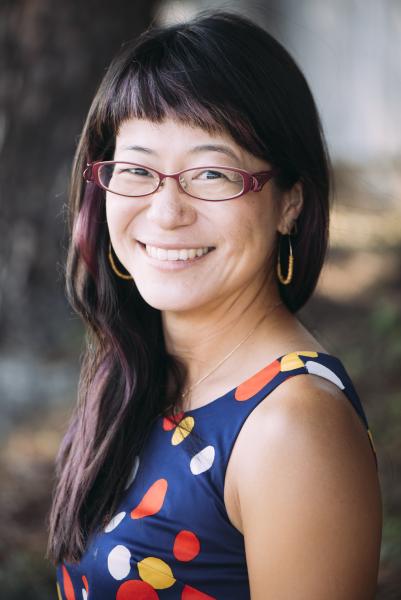CJS Noon Lecture Series | Hired to be Overheard: Resonances of Chindon-ya in Contemporary Japan
Marié Abe, Associate Professor of Music, Department of Musicology and Ethnomusicology, Boston University
Chindon-ya, dating back to the 1840s, are ostentatiously costumed street musicians who publicize a business by parading through neighborhood streets in Japan. Against the background of long-term economic downturn, growing social precarity, and nuclear anxiety, Abe’s recently published book investigates how this seemingly outdated means of advertisement has recently gained traction as an aesthetic, economic, and political practice after decades of inactivity. Drawing on the book, this presentation will address the central analytic hibiki (resonance), which highlights the processes in which chindon-ya’s sound is designed to elicit an affective response from a listener who simply “overhears” chindon-ya in public spaces.
Marié Abe is Associate Professor of Music in the Department of Musicology and Ethnomusicology at Boston University. Broadly speaking, her scholarship explores the intersection of sound, space, and sociality, bridging sound studies and cultural human geography. Her recent projects examine the politics of sound in social movements, in the contexts of anti-US military movements in Okinawa and post-3.11 Japan, as well as the musical and historical affinity between Japan and Ethiopia in the 20th century.
If you are a person with a disability who requires an accommodation to attend this event, please reach out to us at least 2 weeks in advance of this event. Please be aware that advance notice is necessary as some accommodations may require more time for the university to arrange.
Marié Abe is Associate Professor of Music in the Department of Musicology and Ethnomusicology at Boston University. Broadly speaking, her scholarship explores the intersection of sound, space, and sociality, bridging sound studies and cultural human geography. Her recent projects examine the politics of sound in social movements, in the contexts of anti-US military movements in Okinawa and post-3.11 Japan, as well as the musical and historical affinity between Japan and Ethiopia in the 20th century.
If you are a person with a disability who requires an accommodation to attend this event, please reach out to us at least 2 weeks in advance of this event. Please be aware that advance notice is necessary as some accommodations may require more time for the university to arrange.
| Building: | Weiser Hall |
|---|---|
| Event Type: | Lecture / Discussion |
| Tags: | Asia, Japanese Studies, Music |
| Source: | Happening @ Michigan from Center for Japanese Studies, International Institute, Asian Languages and Cultures |


